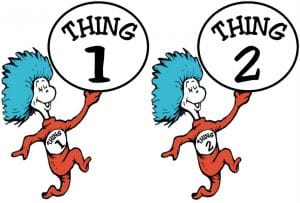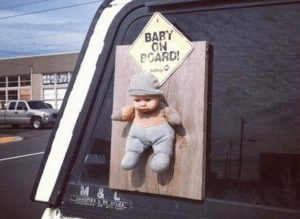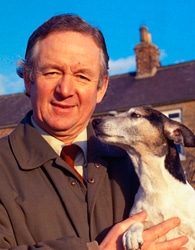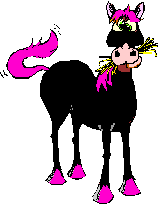 One of the things that always makes taking care of horses interesting is the fact that they are owned by people. In order to have a career as a veterinarian, you have to recognize that each call comes with two sets of problems that are not necessarily related.
One of the things that always makes taking care of horses interesting is the fact that they are owned by people. In order to have a career as a veterinarian, you have to recognize that each call comes with two sets of problems that are not necessarily related.
- The problem with the horse
- The concern of the horse’s owner
It’s entirely possible to take care of the horse’s problem and not address the underlying concern of the owner. If you do that, you’re simply not going to be perceived as being a “good” veterinarian. On the other hand, it’s entirely possible to address the owner’s concerns (or manufacture concerns for the owner – that’s another story), and not do anything for the horse. If you do that, you may actually do very well, since a lot of horse problems take care of themselves.
Now I am absolutely certain that each and every veterinarian could write a book about their experiences with animal owners (and I imagine that animal owners would write some books about their experiences with veterinarians, too). For example, the late Dr. James Wight, writing as James Herriot, wrote a marvelous series of books, beginning with “All Creatures Great and Small,” which were also adapted into a wonderful British television series. (The books were quite influential on my desire to become a veterinarian, and if you haven’t read at least the first one, well, you should.) My friend Dr. Courtney Diehl wrote a very enjoyable book about about modern life as a mobile veterinarian, which is also well worth a read.
So in the spirit of, “We’re all in this together,” I figured I’d share a couple of people stories, just for fun.
WHERE I FIRST LEARNED THAT YOU CAN SOMETIMES FIGURE THINGS OUT WITHOUT ACTUALLY SEEING THE ANIMAL AND A LOT DEPENDS ON ASKING THE RIGHT QUESTION
When I was a senior in veterinary school, we had to rotate through emergency duty, which meant that we also had to answer the phones at the veterinary hospital after hours. This, of course, was also a perfect time to prank call your classmates to test their resolve and sense of humor. So, when sitting at the desk, one might get a call along the lines of, “My ferret is urinating, and it’s blue.” And you’d never know, at least initially, whether the call was serious or not, which added to to fun for the caller, who ordinarily would keep piling on preposterous clinical signs until the whole thing collapsed under its own hilarious weight.
 It was in that spirit that one evening, I received a call from a concerned pet owner. “My hamster’s feet are bleeding,” I was told. I figured it was my turn.
It was in that spirit that one evening, I received a call from a concerned pet owner. “My hamster’s feet are bleeding,” I was told. I figured it was my turn.
It may not be a big surprise to you to learn that we didn’t really have any classes in hamster medicine – other species being both more expensive and of more general interest – so I did not have a wealth of information on bleeding hamster feet from which I could draw. Undaunted, a launched into a series of questions that we had learned, questions designed to help us, well, ferret out the problem.
“What does he eat?”
“Hamster food.”
“How long have you owned him?”
“A year.”
 “What does he do?” (I have to confess, I was getting a bit desperate here, I mean, what does any hamster do?
“What does he do?” (I have to confess, I was getting a bit desperate here, I mean, what does any hamster do?
“He runs on his wheel all day.”
At this point, I was grasping at straws, but never one to shy from a challenge, I asked, “Has anything changed in his environment?”
“We bought him a new wheel. He used to have a plastic wheel but it was too noisy. So we got him a new metal wheel.”
“Ah,” I said, rubbing my chin (figuratively, at least). “When did you get him his new wheel?”
“About a month ago.”
“And how long have his feet been bleeding?”
“About a month.”
BINGO!!!!
I asked if she had the old wheel, and she said she did. I suggested that she change back to the old wheel, and put the hamster someplace farther from the bedroom. She thought that was a great idea. In fact, she said, “It’s wonderful to be able to talk to such a great doctor.”
My chest swelled with pride. Last hamster call I ever had, but I think it was good that I got to quit while I was ahead.
 WHERE I FIRST LEARNED THAT LITERAL INTERPRETATIONS CAN OCCUR UNEXPECTEDLY
WHERE I FIRST LEARNED THAT LITERAL INTERPRETATIONS CAN OCCUR UNEXPECTEDLY
I used to try to keep more regular hours, at least until I figured out that, when it comes to responding to calls from horse owners, the term “regular hours” is rather fluid, unless you just grudgingly accept that there are 24 hours in a regular day. I used to try to take Mondays off, since it’s the horse trainer’s holiday. And so it was one Sunday, when I was vaccinating horses at a clinic at a local barn, when I was rendered speechless by a very sympathetic client.
“You sure do work a lot,” she said, seeing horses lined up to get their shots on a Sunday, around noon.
“Thanks,” I said, grateful that anyone would notice (one gets used to being taken for granted after a while),
“What are your hours, anyway?” she asked.
 “Well,” I replied, stroking my chin thoughtfully, I’m sure, “I try to work Tuesday through Sunday, and Mondays are for emergencies only.”
“Well,” I replied, stroking my chin thoughtfully, I’m sure, “I try to work Tuesday through Sunday, and Mondays are for emergencies only.”
“How do you do that?” she asked.
I have to admit that question had me pretty well stumped. If she had asked, “Why?” I had the schedule that I had, I’m sure I could have come up with something about wanting to be available for horse owners at a convenient time, or trying to not work on the trainer’s day off, or something, but, “How?” I really didn’t know what to say.
So almost completely bewildered, I asked, “How do I do what?”
And she said, “How do you get all of your emergencies on Monday?”
It’s all a bit foggy after that….
WHERE I LEARNED THAT SOMETIMES YOU SHOULDN’T ANSWER PEOPLE’S QUESTIONS EVEN IF YOU CAN’T FIGURE OUT HOW TO REASSURE THEM
 I was attending to a horse with a hematoma of it’s hind leg. For those of you who don’t know, a hematoma occurs after a blood vessel breaks under the skin. The usually show up in areas like the horse’s chest or stifle: areas where there’s some looser skin. Although they usually aren’t that big a deal, hematomas are rather impressive to see, leaving the horse with a big bag of fluid to carry around for a few weeks until they resolve, as they almost always do.
I was attending to a horse with a hematoma of it’s hind leg. For those of you who don’t know, a hematoma occurs after a blood vessel breaks under the skin. The usually show up in areas like the horse’s chest or stifle: areas where there’s some looser skin. Although they usually aren’t that big a deal, hematomas are rather impressive to see, leaving the horse with a big bag of fluid to carry around for a few weeks until they resolve, as they almost always do.
Some people, however, are not granted much patience, and this client in particular was very insistent that he wanted the hematoma gone ASAP. That’s certainly something that can be done, but it requires opening the thing up, and draining out the fluid, and putting in a surgical drain so that the draining wound doesn’t close up and allow the thing to fill back up with fluid (as it is wont to do). I prefer to let them resolve, because wound aftercare can be a bit of a bore for some people, and, as I said, they tend to get better anyway. So after trying several different approaches to trying to get him to just leave the darn thing alone, I finally relented and told him that we could drain it, as long as the wound was taken care of. He assured me that he and his girlfriend – who was standing right next to him – would see that the appropriate aftercare was done.
 I prepped the area for an incision, cut into the hematoma, and fluid began pouring out of the wound in a very impressive stream (there’s a lot of fluid in one of these things).
I prepped the area for an incision, cut into the hematoma, and fluid began pouring out of the wound in a very impressive stream (there’s a lot of fluid in one of these things).
“OH MY GOD!” he cried. “What if the fluid doesn’t stop?”
“It will stop,” I said. “There’s just a big pocket. It’ll stop pretty quickly.”
“But what if it doesn’t stop?”
“Really, it will be fine. It’s not really that much fluid for an animal the size of a horse.”
“But what if it doesn’t stop?” he repeated (again).
“Seriously, it’s fine. Everything’s perfectly under control.”
 “But what if it doesn’t stop?”
“But what if it doesn’t stop?”
OK, what would you have said? I have to admit, I was a little frustrated at my inability to convey that everything was under control, and frustrated was probably not the best place for me to be. So, in a fit of snarkiness, I decided to answer his question. “If it doesn’t stop, he’ll die.”
“OH MY GOD! HE’S GOING TO DIE?”
Apparently things hadn’t been going that well in their relationship, but I am eternally grateful that his girlfriend was there. She took this opportunity to jump in.
“You just wouldn’t stop. You wouldn’t listen to his answer. You just kept talking. You never listen. You never listen to me either. I’m so tired of all of your nonsense. Why don’t you listen to me? Remember last week when….”
Head down, but biting my lip hard to keep from losing my composure, I focused on finishing up. Sometimes, you just can’t figure out the right thing to say, but it works out anyway.
It’s interesting, this veterinary profession. Most of the time, the horses are the easy part.









